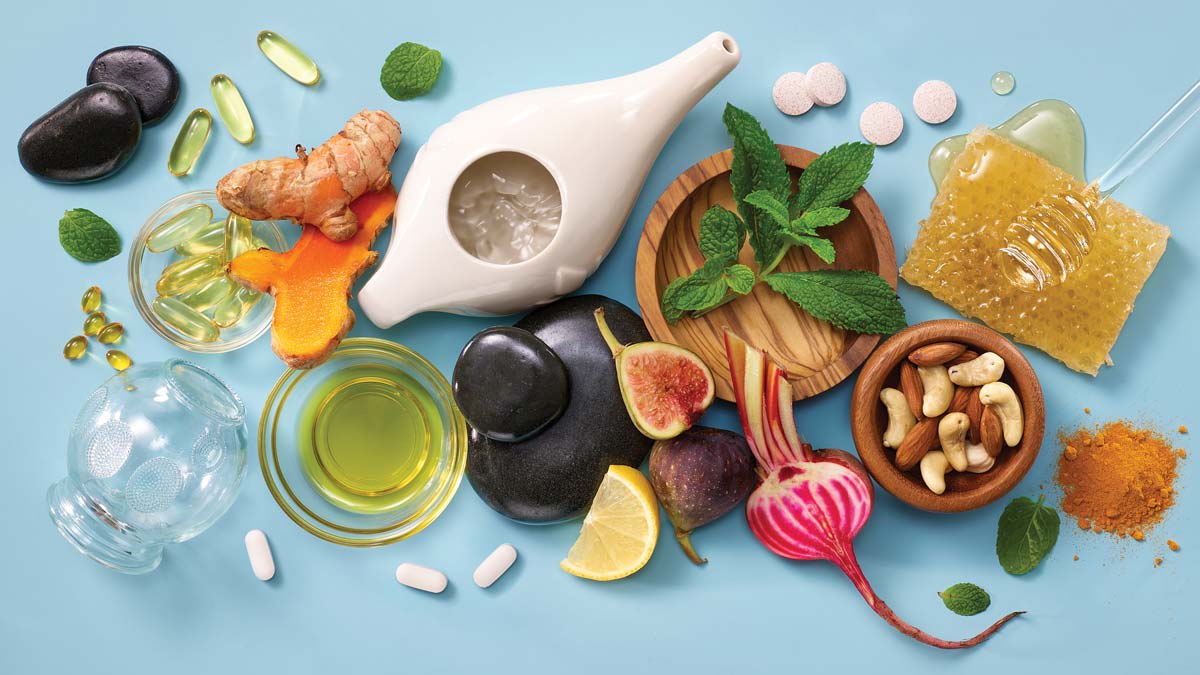What Works
Omega-3 fatty acids: Taking about 3 daily grams of these supplements reduced high blood pressure modestly, according to a 2022 American Heart Association review. But dining on fatty fish like salmon, herring, mackerel, or sardines two to three times a week may give you similar benefits, says Nieca Goldberg, MD, a clinical associate professor at the New York University Grossman School of Medicine in New York City. Omega-3 supplements also appear to reduce triglycerides (fats that circulate in the blood along with cholesterol). But if yours are high, a prescription-level omega-3 may be best, Goldberg says.
Berberine: This supplement helps reduce cholesterol absorption, and one meta-analysis found that 900 to 1,500 mg daily significantly improved total cholesterol, LDL (“bad”) cholesterol, and triglycerides. “We sometimes use it in people who can’t reach their cholesterol target even on statins,” says Robert S. Rosenson, MD, director of the Metabolism and Lipids Program for the Mount Sinai Health System in New York City.
Meditation: Both meditation and mindfulness-based stress-reducing techniques—like focusing on your breathing—can help you better manage high blood pressure and the stress that can raise it, according to the AHA. “For people with mildly elevated blood pressure, this may be enough to keep them off of medications,” says Goldberg. Even using an app like Calm or Smiling Mind for a few minutes a couple of times a day may help, she says.
Yoga: People who regularly do yoga are 85 percent more likely to have normal blood pressure than others, says a 2022 study in BMC Public Health. The practice “induces a relaxation response in your body that lowers your blood pressure,” says Goldberg. She advises avoiding hot yoga, which can lead to dehydration.
The Jury Is Still Out
Plant sterols and stanols: These substances, found in many whole grains, fruits and vegetables, nuts, seeds, and legumes, block LDL cholesterol absorption, says Rosenson. They’re also added to certain margarines (Benecol) and to supplements such as Benecol Soft Chews and CholestOff. But you should get enough from a heart-healthy diet, and there’s no proof yet that adding them to foods or taking them as supplements cuts heart disease risks, he says.
Coenzyme Q10: If you have heart failure, some studies suggest that supplements of this antioxidant—which the body naturally produces—are helpful: They may lower the likelihood of hospitalization and death from heart failure. But whether they help lower high blood pressure or cholesterol or ease the side effects of cholesterol drugs like statins is a question mark. “It falls into the category of it won’t harm you, but we don’t know that it will help you,” says Rosenson.
Probiotics: There’s some evidence that probiotic supplements (“good” bacteria and yeasts) may reduce cholesterol. But we haven’t yet determined which strains are effective, says Goldberg. For now, you may want to put probiotic-rich foods, like Greek yogurt and fermented foods like kimchi, in regular rotation in your diet.
Don’t Use
Red yeast rice: These supplements are basically unregulated statins, says Rosenson, referring to prescription cholesterol drugs. They contain monacolin k, which is identical to the active ingredient in some statins. “If you’re already taking a statin, you could get too much,” he says. In addition, a 2021 analysis of red yeast rice supplements from 37 brands found that 36 had high levels of a substance called citrinin, which can cause kidney damage.
Source link
